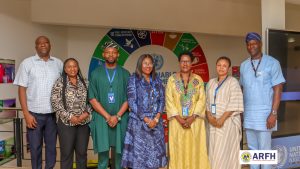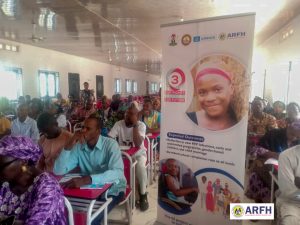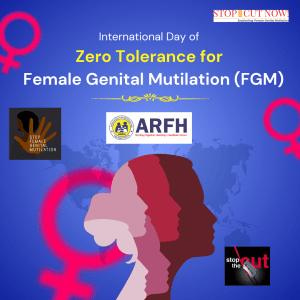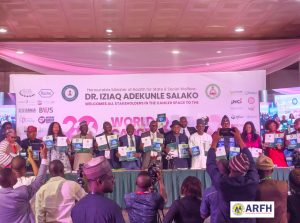
Emergency Contraception Pills is one of the underutilized contraceptives in Nigeria. However, it was officially approved to be included as one of the Essential Medicine list for Nigeria in 2015. There have therefore been a lot of Advocacy to seek support for the revitalizing of Emergency Contraceptives Pills (ECPs) Access and Integration in Nigeria since 2015 and significant progress has been made in this regard. Further to the revitalization agenda, ARFH received support from International Consortium of Emergency Contraception (ICEC) to work with the Federal Ministry of Health to develop Training Manuals (Trainers Manual and Participants Handbook) on Emergency Contraception Pills for the country.
The main goal for the development of the manual was to instill service providers with the necessary skills and knowledge to safely provide ECPs accompanied by clear and correct information and explanations. The Manuals specifically addressed the following:
- provided guidance on the types, mechanism of action, effectiveness and side effects of ECPs;
- addresses appropriate precautions and considerations concerning the use of LNG-ECPs;
- Succinctly described how ECPs are used;
- The essentials of client counselling and answers to common questions related to ECPs;
- Actions to be taken in the management of side-effects of ECPs;
- How to address the Needs of Specific Populations;
- The priority areas and roles of partners in EC programming in Nigeria
The steps taken by ARFH to achieve this responsibility was systematic and methodical starting with effective partnership with Federal Ministry of Health and positive engagement of stakeholders, especially key partners on Reproductive Health and Family Planning including state actors.
There were series of activities that preceded the final development and dissemination of the manuals beginning with stakeholder’s engagement, effective planning, engagement of experienced consultants, stakeholder’s engagement for technical review, pretest of the manual in two states and the final review.

Renewed Reproductive Health/Family Planning Expert, Professor Adekunle was engaged as the consultant for the development of the manuals. As soon as the first draft was developed, it was subjected to technical review by key RH/FP expert in the country. The one-day technical review meeting which was held on 25th November, 2017 in Ayalla Hotel availed the experts the opportunity to break into groups to study the documents painstakingly in line with approved guidelines, made technical inputs and present final copies in plenary for common understanding. After the technical review, the manuals were pretested.

The pretest exercise was held in two regions of the countries – Kaduna representing the Northern axis and Oyo state representing the southern region, the draft manuals were used in real life situation where a facilitator used the draft Trainers Manual to train group of participants selected from FP Providers who also used the Participants handbook in real life experience.
Both the facilitators and participants provided feedback on the various components of the documents including the design, scope, content, context, simplicity, understandability and acceptability. The pretest was held for one day and one key recommendation from the pretest was the need to increase the number of days for the real training to two days to be able to cover the key components.

Following the successful completion of all the key activities, the final ECP (LNG) manual with all the necessary edits and amendments from all the relevant stakeholders, the final copies were presented to expanded stakeholders on the 25th of January, 2018 at Ayalla hotels, FCT, Abuja for final adoption and final dissemination for use in Nigeria ARFH has produced the final copies and currently being distributed to all the 36 State and FCT in Nigeria.
The Levonorgestrel Emergency Contraceptive Pills (LNG-ECPS) Training Manuals developed by ARFH, FMOH, SRHR stakeholders will contribute to knowledge and address unmet needs for emergency contraception in Nigeria.
ARFH appreciates the Federal Ministry of Health (FMOH), for their effective coordination of health activities in the country and for their unflinching support for ARFH and other partners in achieving key milestones in national assignments. ARFH appreciates other key stakeholders working on Family Planning and Reproductive Health in Nigeria including; United Nations Fund for Population Activities (UNFPA), Clinton Heath International, DKT, FHI360, Jhpiego, HEFRON, Palladium, BALSADA, NURHI, representatives from States Ministries of Health from Kano, Enugu, Taraba, Rivers and FCT, and representatives of Service Providers for their availability, technical inputs and great support to produce these national documents.
Our sincere appreciation goes to the International Consortium of Emergency Contraception for the financial support and technical inputs that culminated into the production and distribution of the final copies.





